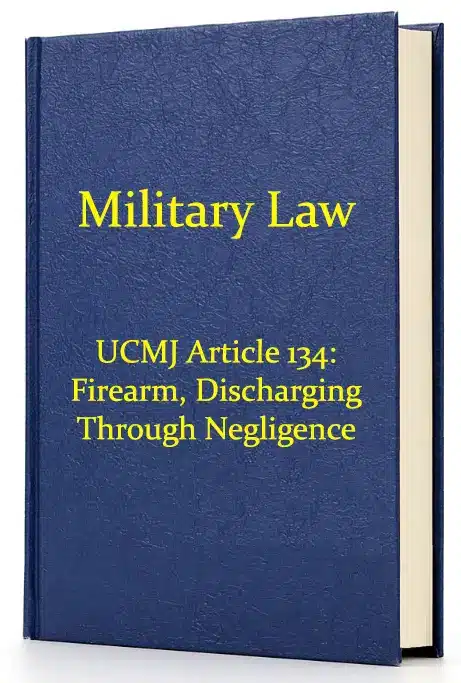The MCM states for a service member to be convicted for a violation of Article 134 (Firearm, Discharging Through Negligence), the prosecution must demonstrate that:
-
the accused discharged a firearm;
-
the negligence of the accused caused such discharge and
-
under the circumstances, the conduct of the accused was either (i) to the prejudice of good order and discipline in the armed forces, (ii) was of a nature to bring discredit upon the armed forces, or (iii) to the prejudice of good order and discipline in the armed forces and of a nature to bring discredit upon the armed forces.
Understanding Article 134 (Firearm, Discharging Through Negligence) of the UCMJ
‘Negligence’ is said to have occurred when the accused did not exercise due care. It is an act or omission of the individual under a duty to exercise due care. The act exhibited an absence of care for the safety of other people, which a reasonably careful individual would have exercised in a similar circumstance.
Maximum Possible Punishment for Violations of Article 134
Service members convicted of violations of Article 134 for Firearm, Discharging Through Negligence face a maximum possible punishment of confinement for three months and forfeiture of two-thirds pay per month for three months.
How do you defend against Article 134 Firearm, Discharging Through Negligence charges?
When facing the combined military resources and the current cultural climate, you must be prepared to defend your career and freedom. Crisp and Associates, LLC has a team of experienced trial attorneys with over 75 years of combined experience who have won these cases. This team includes the firm’s founder, Jonathan Crisp, a highly respected and sought-after attorney, speaker, and lecturer who has served in the U.S. Army Judge Advocate General’s Corps (JAG) since 1998 and entered private practice in 2007.
If you, or someone you know, is facing Article 134 charges for Firearm discharge through Negligence, you need to speak with a Military defense attorney immediately. We understand what is at risk and know how to protect your career, freedom, and future.



